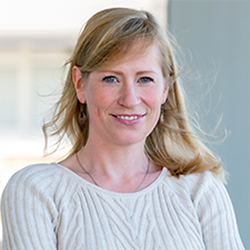"New insights into aneuploidy in mammalian embryos," Melina Schuh, Max Planck Institute for Biophysical Chemistry

When:
Wednesday, November 11, 2020
12:00 PM - 1:00 PM CT
Where:
Online
Webcast Link
Audience: Faculty/Staff - Student - Post Docs/Docs - Graduate Students
Contact:
Vanessa G
(312) 503-7959
Group: Department of Cell and Developmental Biology
Category: Lectures & Meetings
Description:
CELL & DEVELOPMENTAL BIOLOGY DEPARTMENT SEMINAR SERIES:
"New insights into aneuploidy in mammalian embryos"
Melina Schuh, PhD
Director, Max Planck Institute for Biophysical Chemistry
Wednesday, November 11, 2020
12:00 – 1:00 PM
Zoom Link: https://northwestern.zoom.us/j/97808452444
Meeting ID: 978 0845 2444
Password: available upon request
Call-in: +1 312 626 6799 US
Abstract
The Schuh lab studies meiosis in mammalian oocytes. In her presentation, Melina will summarize her lab’s recent research on the spindle in mammalian oocytes. Her lab found that human oocyte spindles are surprisingly unstable, and identified functions for actin and a liquid-like meiotic spindle domain for spindle assembly in mammalian oocytes. In the main part of her talk, she will present recent work from her lab that sheds light on the origin of high aneuploidy rates in mammalian embryos. The vast majority of human embryos are aneuploid. Aneuploidy frequently arises during the early mitotic divisions of the embryo, but the origin of this remains elusive. Using bovine embryos as a model for human embryos, we identify an error-prone mechanism of parental genome unification which often results in aneuploidy. Surprisingly, genome unification initiates hours before breakdown of the two pronuclei that encapsulate the parental genomes. While still within intact pronuclei, the parental genomes polarize towards each other, in a process driven by centrosomes, dynein, and microtubules. The maternal and paternal chromosomes eventually cluster at the pronuclear interface, in direct proximity to each other. Parental genome clustering often fails however, leading to severe chromosome segregation errors, incompatible with healthy embryo development. Nucleoli, which associate with chromatin, also cluster at the pronuclear interface in human zygotes. Defects in nucleolar clustering correlate with failure in human embryo development, suggesting a conserved mechanism.
Host: Dr. Dileep Varma
Assistant Professor of Cell and Developmental Biology
Northwestern University, Feinberg School of Medicine
Click here to subscribe to the department seminar series
or for more information please contact Vanessa Gonzalez, vanessa.g@northwestern.edu